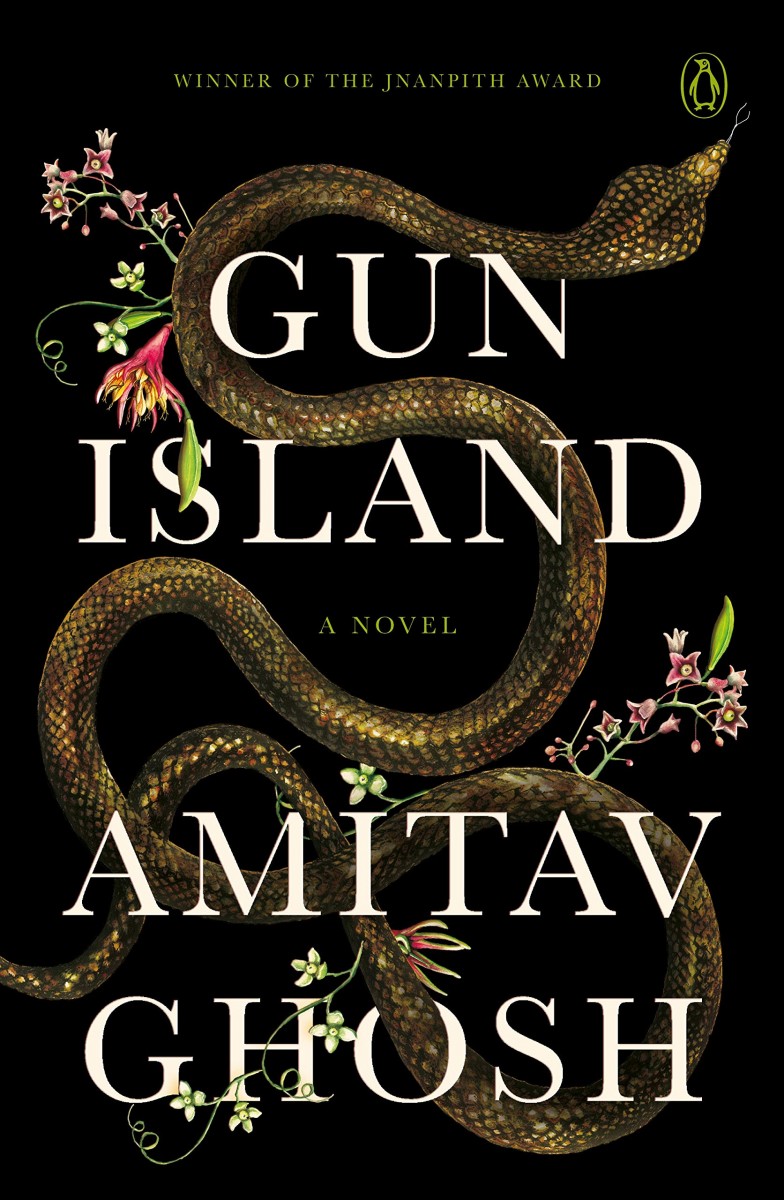Strengthening the Environmental Humanities (old)
Munich reads Gun Island by Amitav Ghosh
As the pressing concerns of climate change are increasingly debated by the general public in Munich, Germany, and beyond, awareness has grown that its manifold societal and ecological consequences cannot be addressed solely through political or technological solutions. Sorely needed are creative and socially committed paths.
Against this background, our project "One Book - Many Worlds: Munich reads Gun Island by Amitav Ghosh" invites faculty, staff, and students of LMU Munich and the Technical University Munich, as well as members of the public, to take part in a multifaceted discussion of climate change through a series of events taking Amitav Ghosh’s climate change novel Gun Island (2019) as a departure point.
Indian author and historian Amitav Ghosh has addressed the major ecological challenges of our time as almost no other public intellectual of our time. His previous work has not only engaged with the many facets of the climate crisis but has also diagnosed the fundamental crisis of imagination plaguing our contemporary lives. As such, Ghosh’s writing consistently demonstrates the importance of tackling challenges like global warming, climate migration, and mass extinction from a cultural and humanistic perspective.
Gun Island offers the perfect platform for engaging with a multitude of pressing issues. The novel tells the story of Brooklyn antiquarian Deen Dutta, who finds himself on a turbulent historical scavenger hunt around the world, bringing him face to face with old and new acquaintances, a medieval Bengali legend, and the consequences of climate change. From Calcutta to Los Angeles to Venice, on his travels Deen encounters both the realities of the current climate catastrophe and the mythical and unreal experiences that mark Ghosh’s prose and his long-standing critique of globalization.
These themes allow “One Book - Many Worlds” to explore in-depth a number of issues from a variety of disciplinary perspectives:
- Climate change research and how it is communicated; the role of the (natural) sciences and of literature in shaping public perception of climate change and its consequences
- Literary genres engaging with climate change narratives (Cli-Fi, magical realism)
- Climate refugees/refugee policy at national, international and supranational levels
- Indigenous knowledge on environmental pollution, climate change and their consequences
- The role of spirituality, mythos, or religion in the Anthropocene
- Climatic impacts on the marine ecosystems (in the Indian Ocean and elsewhere)
- Adaptation strategies in urban planning (e.g. Venice)
“One Book - Many Worlds” takes these themes from the book as provocations for cross-faculty and public-facing events showcasing the imaginative power of interdisciplinary thinking. Planned events include:
- A centerpiece hybrid lecture series, in which two experts representing different disciplines exchange ideas through a short lecture and a subsequent discussion. The aim is to inspire an interdisciplinary exchange between, for example, meteorologists and historians, molecular biologists and comparative literature, and so on
- An especial highlight, should our invitation be accepted, will be several events (lecture, panel discussion) with the author
- Student small project exhibits on the novel’s central themes, to be featured in a student exhibition financed and carried out by the RCC
- A virtual exhibition based on the lecture series, to be made accessible as a teaching and learning resource on the RCC’s Environment and Society Portal
- Throughout the winter semester, interested colleagues from various disciplines will include reading the novel in their seminars and lectures
- Book talks in collaboration with the Munich Ecological Education Center, aimed at all interested members of the reading public
- Further collaborative initiatives with institutions beyond the university, such as museums, bookstores, etc.
- These diverse event formats for university members and the interested public will highlight the disciplinary diversity and the creative and innovative direction of climate change research and thought thinking carried out at the LMU and the Technical University Munich—as well as help bring public discussions of these pressing issues forward in Munich and beyond.
Project contacts:
Dr. Hanna Straß-Senol (hanna.strass-senol@rcc.lmu.de)
Dr. Anna Antonova (anna.antonova@rcc.lmu.de)
The aim of this project is to support the permanent institutionalization of the Environmental Humanities (EH) at LMU Munich. It receives generous funding from the Volkswagen Foundation (January 2020–December 2026) through its “Hochschule der Zukunft/ University of the Future” initiative. The grant will help to internationalize EH at LMU Munich, publicize it within Germany and beyond, and develop and formalize curricula for an innovative state-of-the-art Master’s Program in Environment and Society. It provides transformational funding to develop EH into a fully-fledged discipline at LMU. The project aims to learn productively from the opportunities and challenges of existing EH programs from around the globe; to finance workshops and short-term-visiting professorships; and to design and become experts in innovative teaching tools, such as massive open online courses (MOOCs), field seminars, digital multimedia presentations, and exhibitions.
RCC Director Christof Mauch is the lead-PI of this project. He works with a team of scholars from different faculties at LMU. It is coordinated at the RCC by its two project directors Dr. Anna Antonova and Dr. Hanna Straß-Senol.


